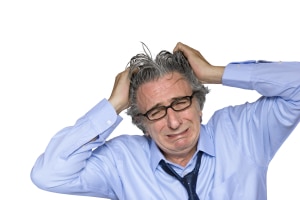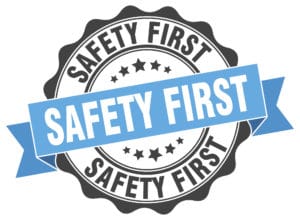Let’s Talk About Low Testosterone in Men
Symptoms of Low Testosterone
If you’re wondering whether you suffer from symptoms of low testosterone, then you’ve just found what you’re looking for. Most men begin to obviously suffer from andropause or male menopause, commonly known as “low testosterone,” when they’re between 40 and 50 years old. It’s inevitable. For many men, low testosterone causes tremendous suffering. Some men suffer from premature andropause, suffering from low testosterone even at very young ages, due to many causes. If you suffer from low testosterone, then whatever the cause, our Gold Standard Concierge TRT Membership was designed to quickly help you unleash your full potential!
Men who suffer from low testosterone can no longer produce enough testosterone to feel good and be healthy, and they’ll suffer from significant, distressing symptoms,  including the following symptoms and medical conditions that decrease their quality and quantity of life.
including the following symptoms and medical conditions that decrease their quality and quantity of life.
- Persistent fatigue that worsens throughout the day
- Loss of assertiveness and confidence
- Anxiety, apathy, depression, irritability
- Loss of libido
- Loss of erectile function
- Obesity, especially abdominal obesity
- Loss of muscle strength and mass
- Diabetes, heart disease, prostate disease, dementia, and other chronic diseases
Meet Charlie Who Suffers From Low Testosterone
Charlie is a 45 year old male. He used to be a strong masculine man, but during the last two to three years things have changed. His muscles aren’t firm and strong like they were before, and he’s actually losing muscle despite working out just as much as he’s always done. He’s noticed his stomach and chest have become fatty. He can’t keep up anymore when he participates in recreational sports. Charlie’s no longer the charming guy he was.  Now his wife calls him a “crabby old man.” He loves his wife so much, and he’s distressed that his sexual potency is suddenly failing. At first he started having difficulty maintaining his erection, but now there are times when he can’t even get one. He’s wondering whether he’s even interested in sex anymore. Suddenly, he’s having problems with high blood pressure, high cholesterol, high blood sugar, depression, and aches and pains that don’t go away like they used to, and other problems. His doctors have prescribed him numerous medications, but they’re not helping, and in fact, they’re making him feel worse.
Now his wife calls him a “crabby old man.” He loves his wife so much, and he’s distressed that his sexual potency is suddenly failing. At first he started having difficulty maintaining his erection, but now there are times when he can’t even get one. He’s wondering whether he’s even interested in sex anymore. Suddenly, he’s having problems with high blood pressure, high cholesterol, high blood sugar, depression, and aches and pains that don’t go away like they used to, and other problems. His doctors have prescribed him numerous medications, but they’re not helping, and in fact, they’re making him feel worse.
Does this sound familiar?
That low testosterone causes these symptoms isn’t just our professional opinion, it’s plain human physiology – a scientific and medical fact. It’s been scientifically proven via the scientific method by hundreds of rigorous studies. Any physician who claims otherwise is ill-informed and ignorant. This is truly evidence-informed medicine. And it’s also been our experience successfully treating thousands of men with low testosterone and watching these symptoms completely resolve over time with properly done testosterone replacement therapy.
But not so fast. These symptoms can also be caused by other diseases besides low testosterone. For example, hypothyroidism (low thyroid hormone), hypoadrenalism (low DHEA and / or low cortisol), and other hormone deficiencies can also cause these symptoms. Some hormones in excess can also cause these symptoms. For example, high estrogen or prolactin can also cause these symptoms. As part of our approach to testosterone replacement therapy, we also evaluate all the primary hormones, and work to identify and address all hormone imbalances and deficiencies. The fact is that we are experts at not just testosterone replacement therapy, but also hormone replacement therapy for men in general. We just say “testosterone” all the time to catch your attention. Admit it. It worked.
What Causes Low Testosterone?
There’s no doubt that low testosterone causes these symptoms, but what causes low testosterone? There are many causes of acquired hypogonadism, also known as low testosterone, andropause, or male menopause, and sometimes referred to as “Low T.”
It is a known fact that as men age their testosterone levels decline. Testosterone levels begin to decline after age 30 by about 1% per year, and free testosterone levels decline even faster. Many men begin to obviously suffer tremendously from symptoms of low testosterone in their 40’s, and many men even suffer from symptoms of low testosterone even in their 20’s. Sometimes, men will suffer from cryptorchidism, testicular torsion, orchitis, orchidectomy, or from pituitary-hypothalamic injury from tumors, trauma, or radiation, or from other medical problems, and in these cases they may suffer from low testosterone for their entire life, and never know why life is so difficult for them.
Find Out If You Suffer From Low Testosterone
When it comes to testing your testosterone levels, the best screening tests are total testosterone, free testosterone, sex hormone binding globulin, estradiol, and PSA. In addition to properly interpreting your total testosterone levels (which most physicians fail to do), we also use sex hormone binding globulin to determine your free testosterone. Free testosterone is the amount of your total testosterone that is actually free to give you all the benefits testosterone is supposed to provide in your body. Sometimes, your total testosterone will be normal, while your free testosterone levels are extremely low. 
Estradiol is made from testosterone, but estradiol levels can be normal, low, or high even if testosterone is low. It’s important to test estradiol to get an idea of how much of your symptoms are being caused by high estradiol as opposed to low testosterone, and also because your liver often makes sex hormone binding globulin to protect your body from the effects of estradiol, and it’s important to know right off the bat how much of your sex hormone binding globulin is being made for this protection as opposed to other reasons. It’s important to test PSA as part of the initial screen, because if your prostate is having problems, those problems may need to be addressed before you further consider testosterone replacement therapy.
Other Important Lab Tests
These are only screening tests to determine whether you suffer from low testosterone and are a candidate for our Gold Standard Concierge TRT Membership. The reality is that low testosterone doesn’t happen in isolation, and often there are other hormone imbalances and deficiencies that also need to be identified and addressed. Often, there are other important medical problems that need to be identified and addressed. Before beginning testosterone replacement therapy, we order and share with you our interpretation of the results of your very comprehensive blood testing.
For example, it’s also important to evaluate thyroid and other hormones such as luteinizing hormone and prolactin. It’s also important to do other basic and more conventional testing to determine your general health.
We understand how our patient’s symptoms and their testosterone levels are related to these other hormones and other medical problems, and we’re careful to identify and address all hormone imbalances and deficiencies, and co-manage medical problems with the rest of your health care team.
Don’t Wait – Find Out Now
If you’re wondering whether you suffer from low testosterone, then you really have found what you’re looking for. It’s important that you seek a physician with expertise in and experience properly diagnosing low testosterone. Go ahead and schedule your blood test and expert TRT consultation with one of our expert physicians who specializes in the diagnosis and treatment of low testosterone and other hormone deficiencies in men. We know what needs to be tested, and we know how to best interpret those tests for you. Furthermore, we know what your best options are one way or another.
We Have Helped Thousands of Men Just Like You Who Suffer From Low Testosterone
Are you suffering from symptoms and diseases we’ve all been told are just an inevitable part of getting older, when in fact they’re really caused by low testosterone and possibly by low levels of other hormones, which can be treated? Are you suffering from decreased sexual health and enjoyment? Have you been told that this is just another inevitable result of getting older? Are you wondering if there’s any way that you can have a robust and vibrant, enjoyable sex life again? Are you having trouble preventing weight gain or losing weight despite doing everything that you can think of in terms of diet, exercise, and other lifestyle measures?
If so, then regardless of your age, but especially if you’re over 40 years old, it’s really important that you see a doctor with expertise and successful experience evaluating and managing these diseases by prescribing testosterone and comprehensive hormone replacement therapy, and other anti-aging and regenerative therapies for men.
Our distinguished team of physicians and staff has more than 10 years of experience successfully treating thousands of men near Portland, Oregon and Seattle, Washington, helping them to live and perform to their full potential quality of life, health, and longevity.
Call 971-438-2700 for more information or help with scheduling an appointment.
